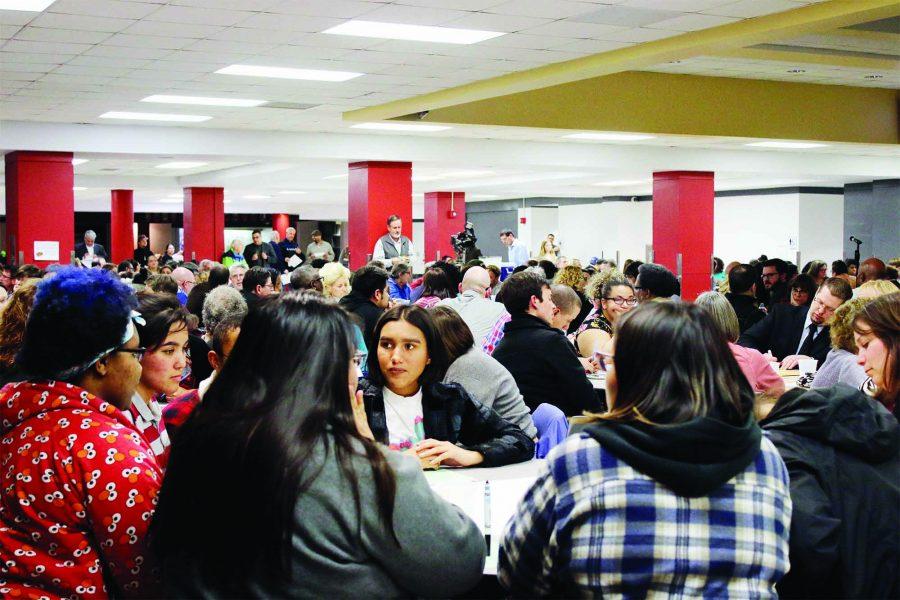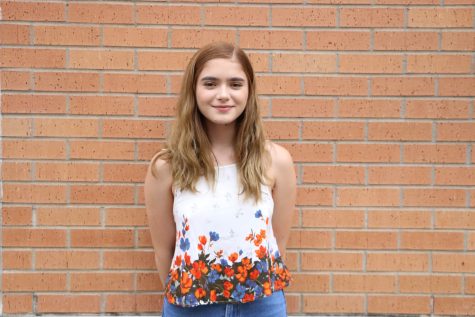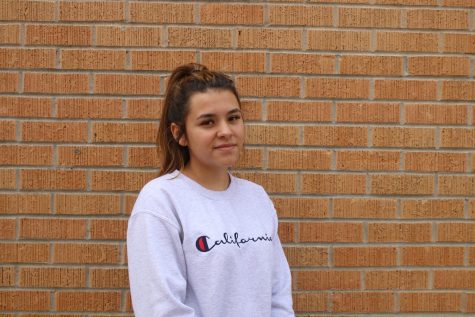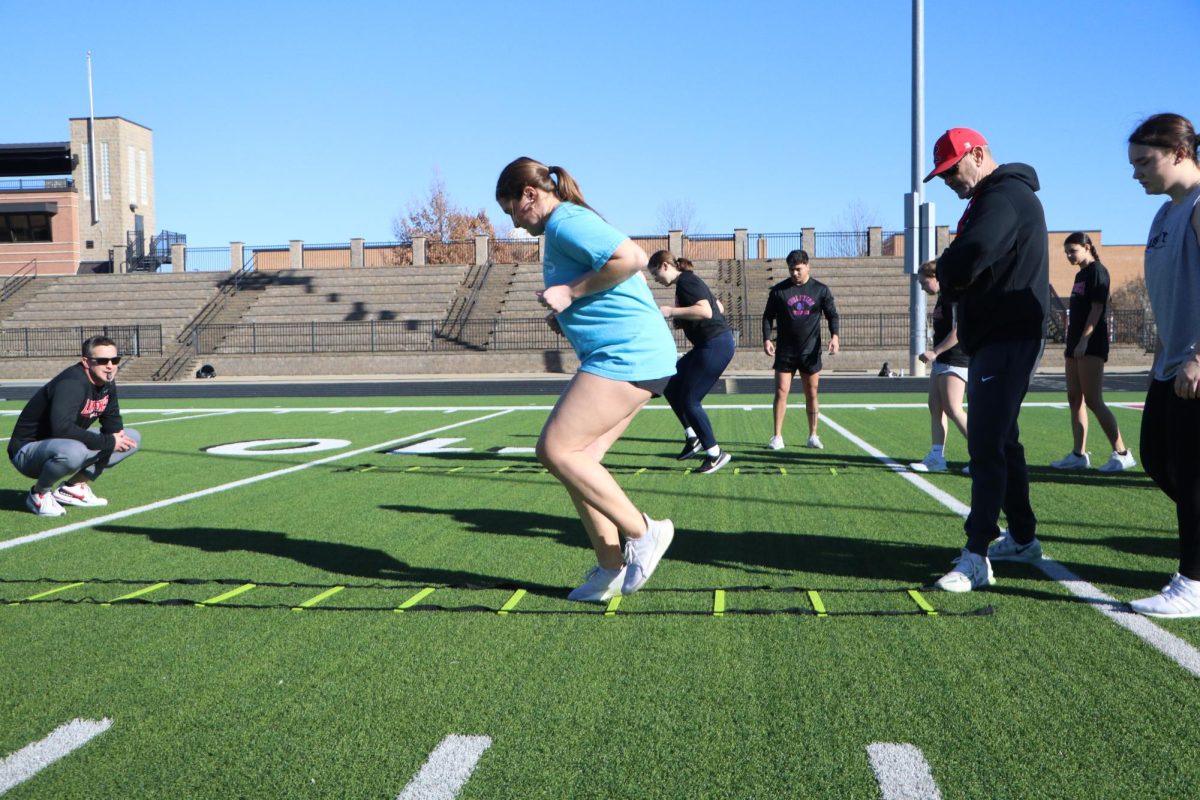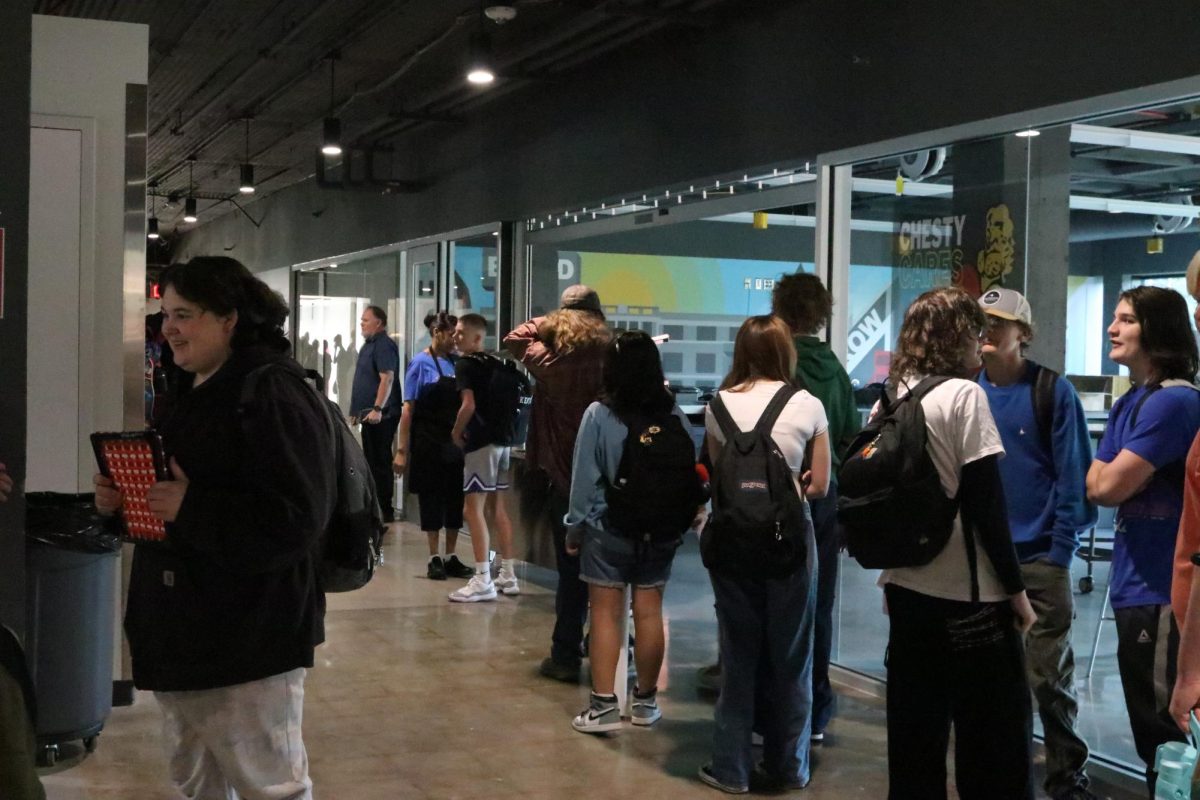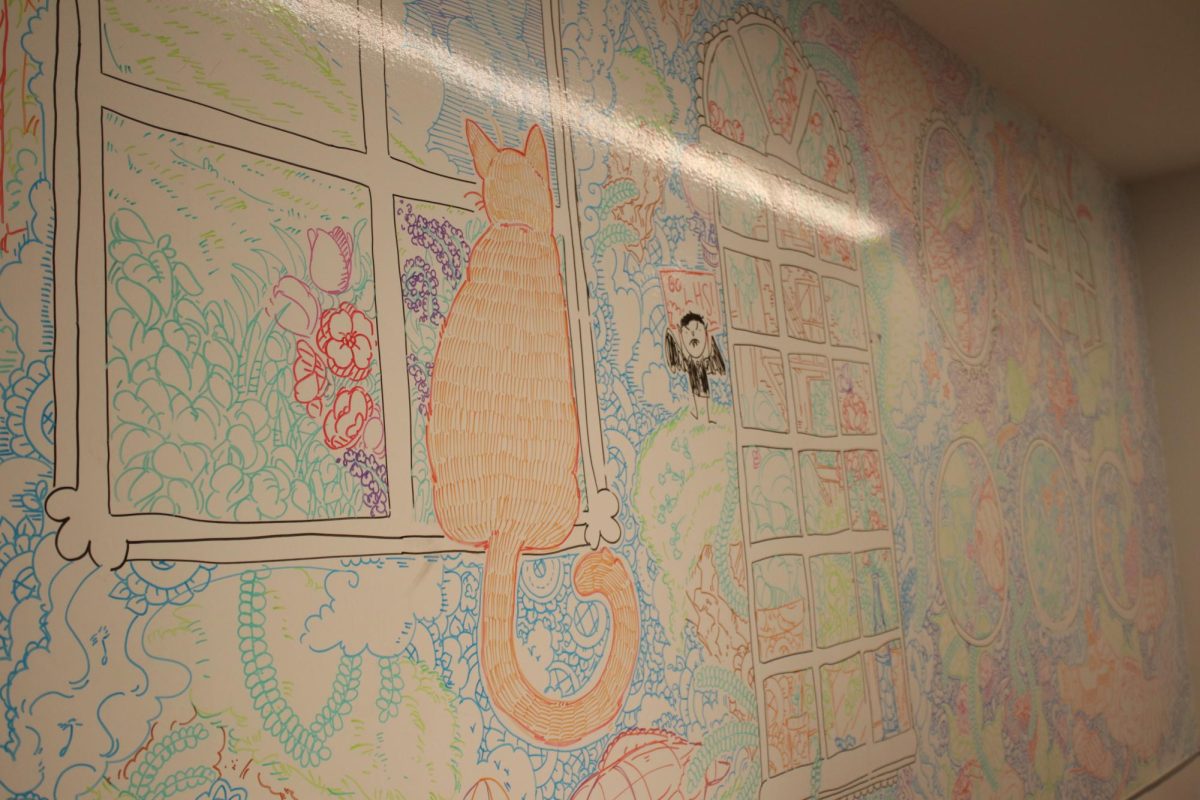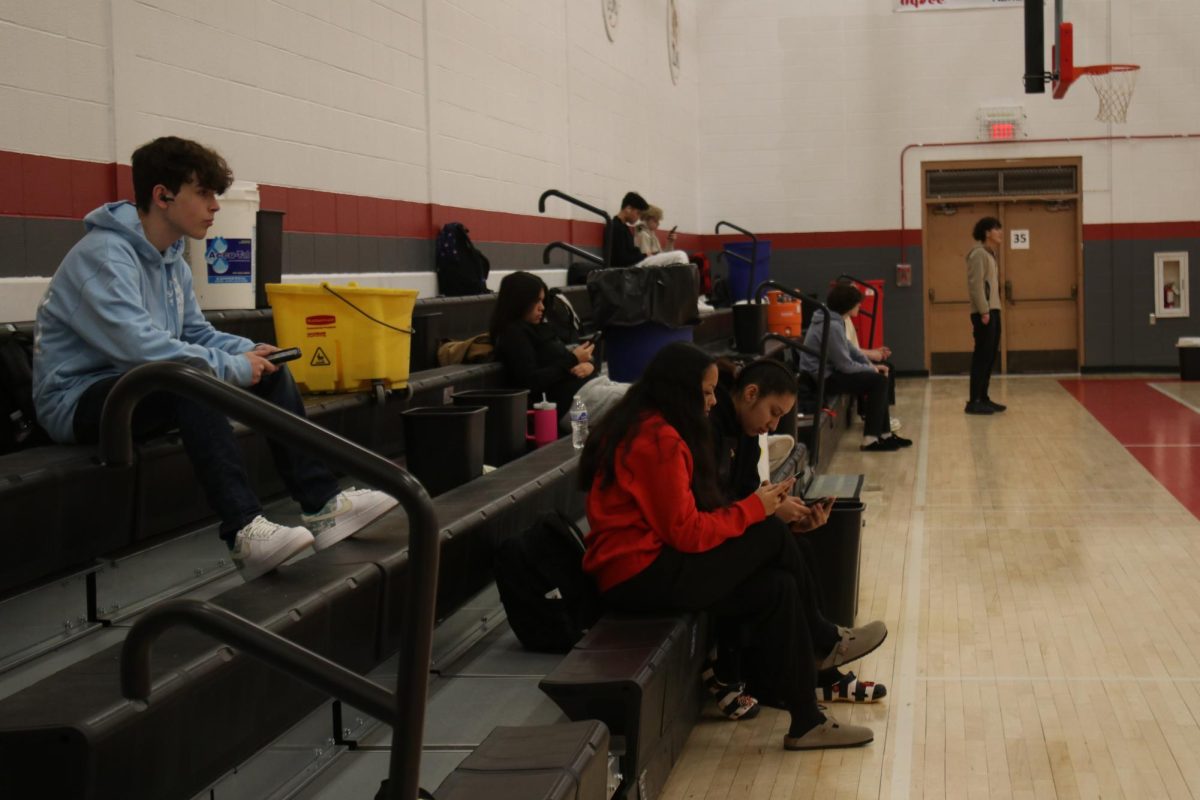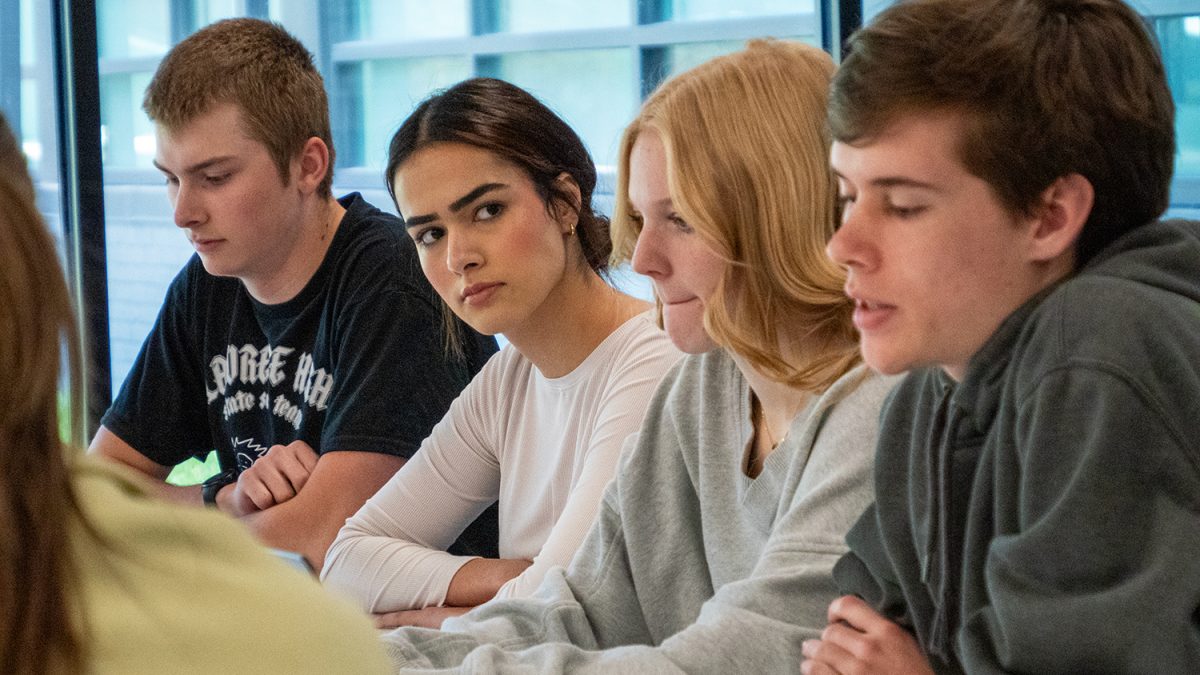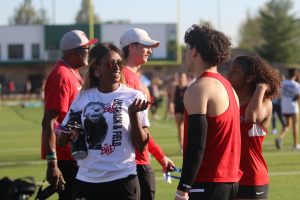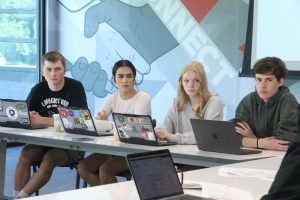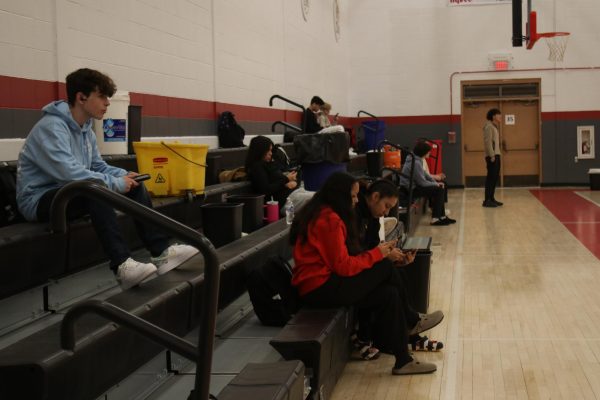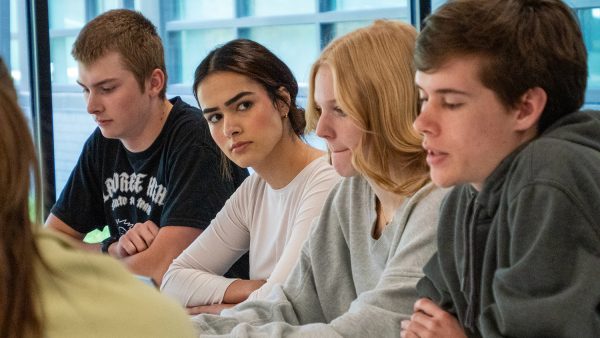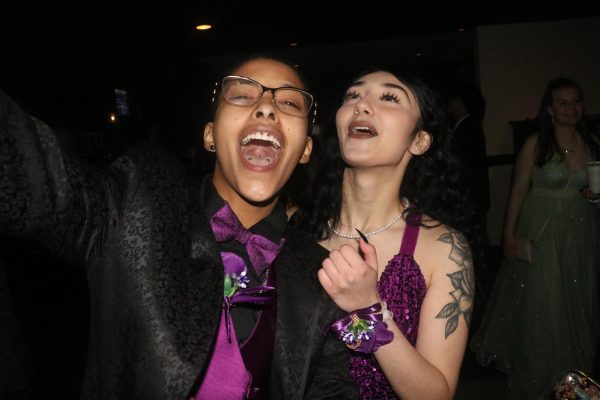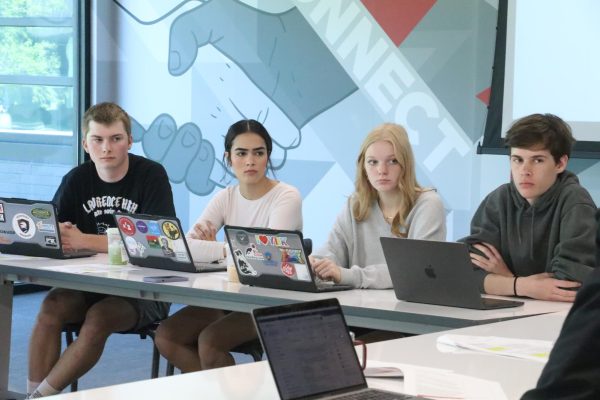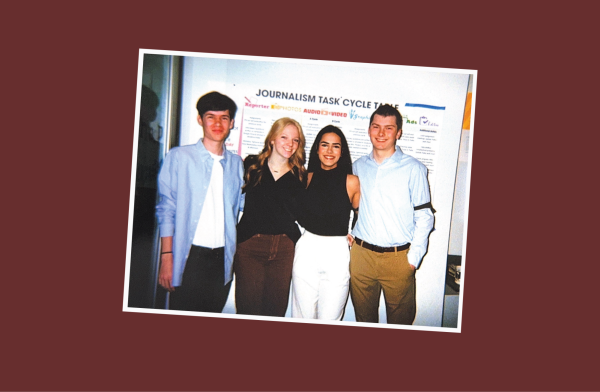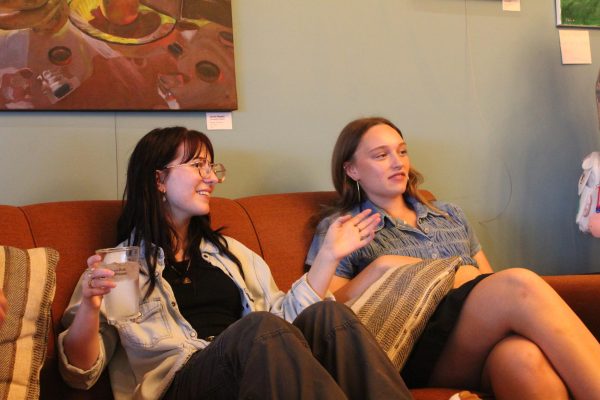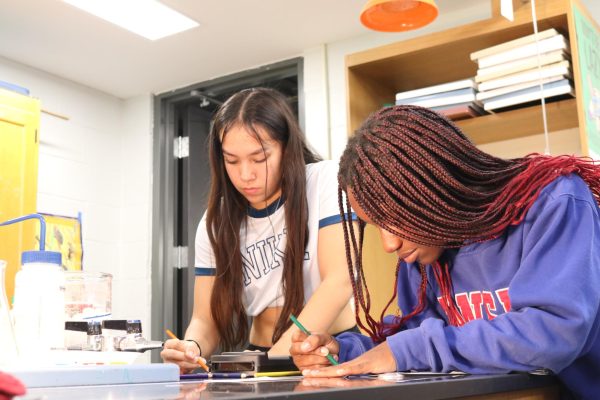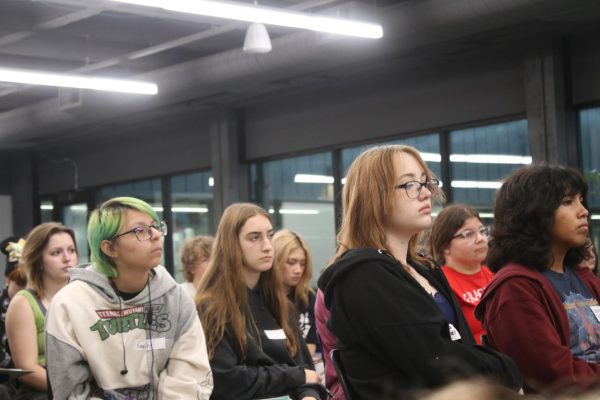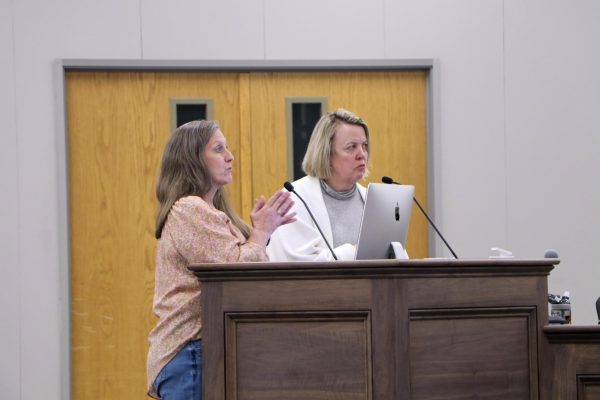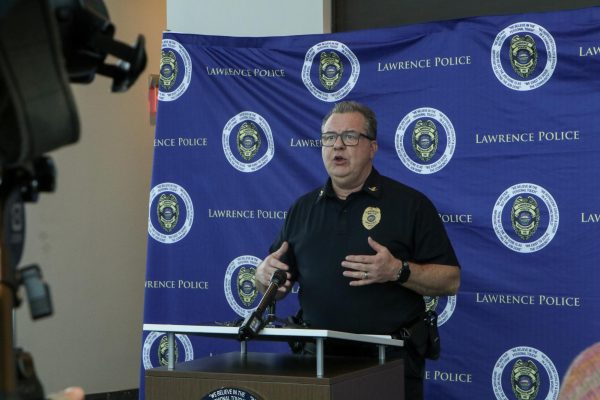Courageous Conversations Held by District
District holds meeting to discuss race.
Listening — Sophomore Hunter Yellow Bird sits at a table with other Lawrence High students at the meeting. Several, including Yellow Bird, are in Inter-Tribal club which read a letter at the meeting.
February 14, 2017
The Lawrence High cafeteria had filled by the time the district-wide equity meeting began last week.
Hundreds of parents, students and USD 497 faculty crowded into the cafeteria for a courageous conversation led by the grandparent of two Lawrence students.
The meeting began with school board president Marcel Harmon sharing the importance of the night’s discussion, calling it a “critical step for our district.”
Harmon was at the meeting as both a school board member and parent. Race continues to affect the way children are treated, he noted.
“Institutional racism and unconscious biases still exist in our schools,” Harmon said.
The mic was turned to superintendent Kyle Hayden, who was hired as the superintendent of Lawrence schools last March. Hayden followed former superintendent Rick Doll, who emphasized the importance of equity work during his career, including beginning “Courageous Conversations” training with staff members.
The district has faced a myriad of issues with equity, most recently crescendoing with a string of incidents at Free State High School and over social media. Free State senior Sonal Soni was at the heart of the conflict after she tweeted that the Free State dance team’s performance at the LHS v. Free State basketball game was “racist.”
The performance consisted of a predominantly white team dancing to “Formation” by Beyonce.
“If you haven’t heard the song, it’s definitely depicting black culture and your heritage in black culture,” said Soni, who is Indian.
Soni said she and some other students were offended. Her tweet was attacked by both Free State and Lawrence High students in replies but also in various mass group messages via GroupMe.
Following dozens of tweets opposing Soni’s, a dance team member apologized on Twitter for how the dance was received. Despite this, many were still angry about the original tweet.
“I faced an immense amount of backlash from students at both high schools, I faced backlash from people in the Lawrence community,” Soni said. “Even teachers. Even security guards. Criticizing me for speaking up against an injustice.”
Threats escalated to the point that Soni said she felt unsupported by most adults at school and unsafe at school, especially after a classmate screamed at her in class. A video of the incident was widely circulated on Twitter. She ultimately filed a police report after she said a student threatened to “knock her down in the hall.”
“School comes around Monday, yelled at in the halls, yelled at in my classes, denying me support,” Soni said. “I go through the rest of the week, I felt the need to buy pepper spray and a self defense alarm because I felt my safety was in jeopardy.”
Others were drawn to the meeting with different experiences of race-based harassment. One parent decided to attend after he said his son was called a “terrorist” by peers at South Middle School.
“Whenever he goes in the hallway,” the boy’s father said in an interview, “he is always listening, ‘Terrorist, terrorist,’ … In general, he is always listening for this word since he is a Muslim and they are always calling him this word.”
His son told him that he had reported the bullying, but that it had only worsened his situation as other students began telling him, “You are a liar and a terrorist.”
“I know my son, he has a very thick skin and he doesn’t care, but those things need to be addressed,” he said.
South Middle School made headlines in the fall after former social studies teacher Chris Cobb was suspended for allegations that he had made racially insensitive comments to his students.
His paid suspension angered parents who took their frustrations to school board meetings, including one that was quickly adjourned after parents took over the meeting, demanding change.
After emphasizing the importance of being engaged, speaking the truth, being uncomfortable and accepting that a resolution might not be met that night, Hayden introduced pastor Adrion Roberson. Roberson facilitated the night’s presentation.
Roberson began by telling attendees about his experiences in Kansas City, Kan., where he leads a congregation. Roberson described meeting with white, Latino and other black pastors in his area to understand where the anger seen in cities like Ferguson, Mo., came from, and he told a story about his son who married into a Hispanic family.
Between anecdotes, he outlined the goals of the meeting and the “ground rules for engagement.”
The tables in the cafeteria had been set with neon pink, yellow, orange and green notecards for an activity that funneled audience opinions into large sheets of paper with suggestions for the district.
After the activity, parents and students, including the Lawrence High School Inter-Tribal Club, went up to the mic to express their opinions and concerns.
The conversation was not without critique. Groups of students and parents expected a forum with the school board, but instead got a two-hour session led by Roberson.
Roberson’s approach to the night was to see the racism in the district as a collection of changes over time as opposed to an immediate fix.
“I hope that you’re looking at this thing from the perspective of progress,” Roberson said.
Jennifer Hamer, a parent and professor at the University of Kansas, told the crowd she wants to see action.
“I disagree with the pastor, even though I appreciate, you know, his facilitation today,” said Hamer, associate dean for diversity, equity and inclusion chair of the department of American studies at the University of Kansas. “This is not about progress. This is about a fix. I think if we just say, ‘all we can do is have progress,’ we may as well stop right now. My daughter is in this school district, and I have friends who have kids in this school district, and we better figure out how to fix it. We know how to fix it.”
Sophomore Hunter Yellow Bird, who participated with members of Inter-Tribal Club, agreed.
“I thought it was a start to something good, I guess,” Yellow Bird said. “I didn’t really think it was very efficient though. There was kind of a lot of like, ‘If, then, if, then.’ I think the best part about it was the speech part because then it really started to get real.”
Inter-Tribal club was followed by students from Free State who recounted some of their experiences in Lawrence schools, including Soni. Yellow Bird said that she would like to see the efforts continue.
“I definitely would like to see more meetings, different actions at the meetings though,” she said. “I guess not make it so, ‘What can we do to make it better?’ and get more active.”
She said that she was surprised by how many students showed up to the meeting, but would encourage more to come.
“[I would] encourage them to think, ‘If it doesn’t affect me, then I should use my power and privilege to make it known that it’s a problem for these people,’” Yellow Bird said.
USD 497 communications director Julie Boyle said that the next steps the board plans to take are sharing community input from the meeting as well as contacting members of a potential advisory committee.
“We are currently compiling the written input received on Monday and plan to present it to the board and share it publicly,” said Boyle, who attended the meeting. “The district will be following up with the individuals who indicated an interest in serving on an advisory committee. We are creating a group to continue to engage parents and community members, particularly parents of students of color, in district and school improvement planning and advisory processes.”
In the meantime, however, Soni said that the district and its teachers can take their own steps toward fixing the current conditions.
“Just being an ally,” she said, “just being the support system, just doing your job as an administrator to be there for your students, to make sure that they feel safe, to make sure that they don’t feel anxiety and a profuse amount of sweat every day they walk into school. School is your second home, it’s my second home, and to feel that everyone’s against you, that’s not something any student should have to feel — regardless of your color.”



